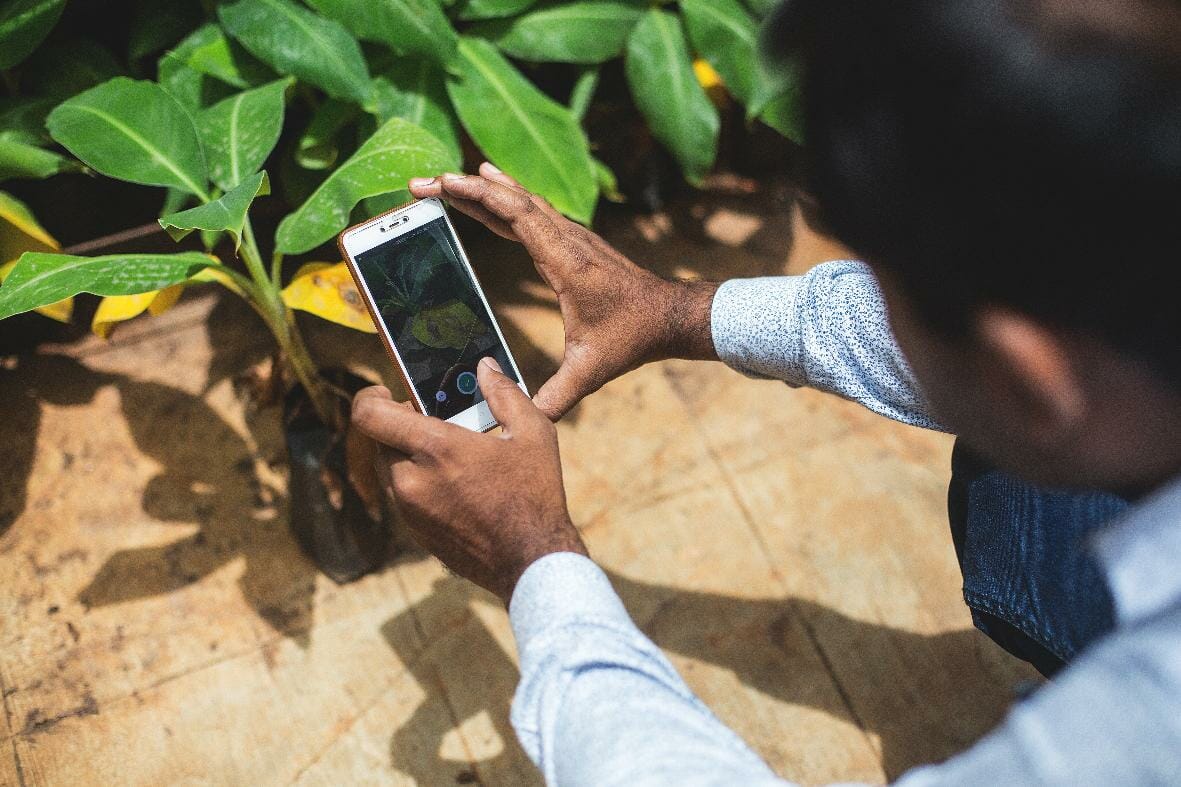Plantix, a platform that harnesses computer vision to enable the early stage detection of crop diseases with a smartphone camera, has raised a €6.6 million Series A led by the Russian early-stage tech investor RTP Global. The round was joined by Piton Capital with existing investors participating, including Atlantic Labs and Index Ventures.
The funding is for improving Plantix’s AI-driven solution, the team say. At present, that entails a digital method for automating the detection of plant diseases along with recommended treatments. One million farmers in India are already using the platform via an app on their smartphones, and the company is set to expand into Indonesia and Vietnam.
Vietnam, Indonesia expansion
Spinning out from the Leibniz University of Hanover, Plantix was founded in 2015 to tackle the issue of crop failure and to increase yields, particularly in the developing world. “We have built the world’s largest database of plant damage to tackle this problem and will be using this fresh capital injection to grow it further,” said CEO and co-founder Simone Strey, who briefed AFN on the funding deal at the NOAH conference in London back in October, before confirming its completion on the sidelines of the Asia-Pacific Agri-Food Innovation Week in Singapore.
Up to 30 per cent of the world’s harvest is lost due to disease and pest infestation, threatening livelihoods and increasing the risk of food shortages. With their free app, users can take photos of their diseased crop which are then processed by Plantix’s AI-driven image recognition software. Users are then shown the most probable disease, nutrient deficiencies or relevant pests.
Treatment advice
With actionable intelligence to hand, users can receive advice on the treatment of the affected plant, which consists of conventional, but also cost-effective and ecological suggestions.
“In developing and emerging countries in particular, our digital solution can drastically reduce crop losses, minimise pesticide use and increase overall yield,” said Strey, in a follow-up note. “The funding will allow us to further optimise our app, make new strategic hires, and expand our global community of experts.”
The app already serves as an international network of scientists, farmers and plant experts, where users can exchange information on crop issues in real-time. The platform offers instant access to cutting-edge preventative measures, disease and weather alerts and reminders for pesticide application.
“With 15 million images on file, Plantix already has the world’s largest plant database,” said RTP Global partner Galina Chifina, who also detailed her decision to invest at NOAH back in October while the deal was being finalised. “More than a million farmers are already improving their yields with the app, and 50 thousand images are being uploaded every day, so it’s fair to say we see huge potential in Plantix. This new round of funding is a testament to the dedication of Simone and her team as well as the strength of the Plantix platform. The app can and will make a major contribution towards building a more sustainable and intelligent global agriculture system by using digital solutions to solve the problems associated with an incredibly fractured ecosystem. We’re excited to offer our expertise and mentorship as Plantix continues to grow its presence across Asia-Pac.”
The highlighting of Asia as a potential growth market for Plantix comes just as PWC, Temasek, and Rabobank co-released their Asia Food Challenge Report: Harvesting the Future, which highlights the need for further use of these sorts of technologies across the region’s food and agricultural landscape. The report revealed that investment in Asia’s Agri-Food sector is lagging behind other regions, particularly North America and Western Europe, due in part to the sheer diversity of countries, their varying levels of economic development, and regulatory systems.





